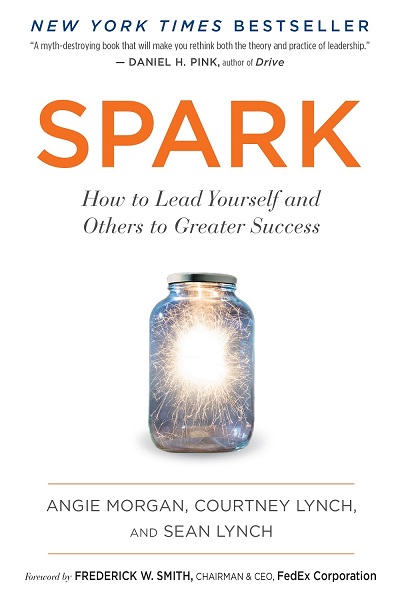These days, the old saying it’s the man in the uniform, not the uniform on the man isn’t just ringing true, but actually something of a trend. Companies and corporations are reevaluating the traditional power structure and ways of the corporate jungle, in the process sometimes cleaning house down erroneous and outdated models no longer supporting healthy, inclusive work environments. Development strategists Angie Morgan, Courtney Lynch, and Sean Lynch are some of the best spoken advocates for such a process – their new book, Spark: How to Lead Yourself and Others to Greater Success – something of a proverbial roadmap for the modern day leadership role. Whether you’re a burgeoning entrepreneur, a celebrated founder, a CEO, or chapter president, Spark undoubtedly will have something for you to chew on relevant to the nine-to-five regime.
LEAD STAR: https://leadstar.us/
Part of what makes the read most effective is how personable Morgan, Lynch, and Lynch come across, dedicating the opening pages to introducing themselves personally as well as professionally, providing skillful and detail-oriented descriptors for their qualitative abilities. Sean Lynch in particular points out the trust and camaraderie he experienced while serving in the military. In true, democratic fashion, he speaks admiringly of the selflessness that was involved with said community, officers of varying ranks giving and exchanging ideas. Now with the work he participates in with fellow strategists Morgan and Lynch, he’s interested in applying such a corporately intrapsychic model to workplace dispatching. The idea of long-term success no longer rests on a certain echelon giving out orders, the three argue, as much as it does on the entirety of the endeavor’s employee base having equal amounts of emotional investment in a shared outcome.
Lynch summarizes this best in the aforementioned introduction to his profile. “It doesn’t matter whether you’re a major or a lieutenant, a CEO or an administrative assistant,” he writes. “You need only one (Spark) to ignite a high-impact change in an organization, even if the first person to change is yourself.” The three strategists go on to clarify in chapter one, “To be a (Spark), you have to recognize yourself as a leader. Know the pathway to leadership development and commit yourself to it. You’re not chosen to be a leader. You choose to lead.” This perfectly encapsulates the other shoe dropping within the trio’s philosophy, specifically in spite of what was stated previously still maintaining the certain, inalienable, and timeless attributes a leader must possess.
AMAZON: https://www.amazon.com/SPARK-audiobook/dp/B01N58Y09X
The kind of person who embodies a man or woman able to guide the ship away from the rapids, remaining by the wheel at all times. Rather than leading through a system of hierarchy, or a system based on fear, Morgan, Lynch, and Lynch say, you need to reacclimatize to leading ‘through influence’. You set the tone, and you have as much responsibility as everyone else – if not more so – to communicate efficiently and responsibly so everyone in the room understands and is aligned with your goals. It’s a kind of generous mindset reminiscent of no other time except today, and something that Morgan, Lynch, and Lynch are able to communicate because of their respective experience without sounding maudlin or alternative.
Kendall Townsend



























